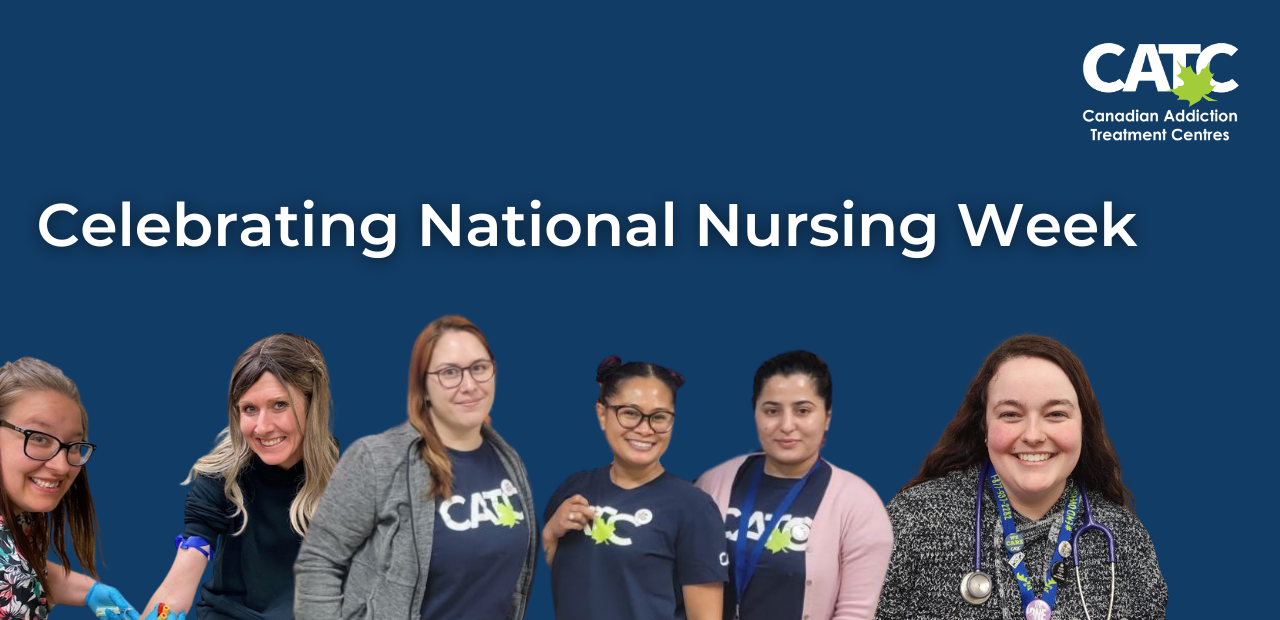Nursing Week 2024: Interview with Shannon Bell
Nursing Week 2024: Interview with Shannon Bell
During National Nursing Week, we’re celebrating the incredible nurses who play a pivotal role in the recovery process for patients and clients in our care. We spoke with Shannon Bell to learn more about her experiences, challenges, and the profound impact of her work.
1. Why did you become a nurse, and what drove you to specialize in addictions care?
I chose to become a nurse after recovering from severe injuries; my vocation at the time no longer felt like it had any longevity as a result of my injuries. It took time, conversations with friends and family as well a lot of self-reflection to make a decision on a new career. I could not see myself doing anything but helping people, which made nursing the next logical step. I then applied to the practical nursing program; during the summer before my final semester my then brother-in-law lost his battle with mental health. He was a patient at Kitchener East and it was his stories of how poorly he was treated in a multitude of public and healthcare settings as he was stigmatized as an “addict”. It was his struggles that he shared that has made me so passionate about addictions care with a person-centred model. I have a strong belief that every person is not whatever they suffer from, they are a person first and foremost and deserve to be treated with respect, especially in a healthcare setting.
2. Can you share a memory from your time working at one of our treatment centres, in which you were able to make a real difference in a patient’s/client’s recovery?
Honestly there is no specific moment I can think of that I made a “real difference” in a patient’s recovery. Each patient faces their own struggles on their journey of recovery. The best I can do is to model consistency, patience and at times assist them in their own accountability.
3. What do you find to be the most challenging and rewarding aspects of working in addiction treatment? What keeps you motivated through the challenges?
The most challenging aspect of working in addictions care is learning not to take patients’ rude behaviour at times as a reflection of care or support provided. Every patient has a bad day from time to time and it can seep into their daily interactions and as a care provider learning not to take it personally.
The most rewarding aspect of working in addictions care is celebrating a patient’s win. A win can be as small as making appointments on time to having a clean UDS sample or regaining custody of a child. Each win is different and the staff here truly are so happy for patients when they show excitement or even a re-gained sense of pride in their actions. These are the moments that keep us clinic staff motivated.
4. What is your approach to building strong relationships with people in your care, and why is it so important to do so?
My personal approach is to maintain a person-centred model and encouraging therapeutic communication in a respectful manner. I have often shared my own personal experiences with patients when it can benefit or strengthen the therapeutic relationship within therapeutic boundaries. Maintaining the person at the centre of their own care is so important as each patient has their own set of goals within treatment and getting to know them helps to provide the best care possible.
5. Why should nurses choose to work in addictions care? What is your favourite part of the job?
Addictions care is as much a vocation as nursing itself. I personally find this to be the healthiest work environment at our Cambridge clinic that I have ever worked in. Our Cambridge team is strong, efficient, compassionate and supportive of each other as well as our patients. My favourite part of the job is the people.
Thank you, Shannon, for everything you do. Happy National Nursing Week!
